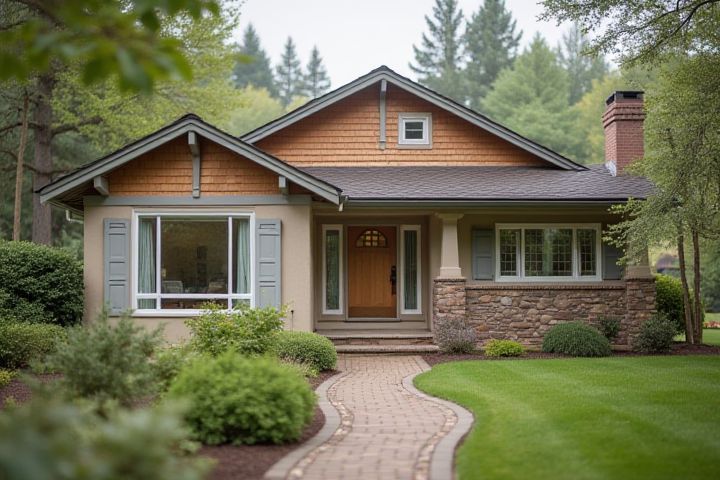
House renovations often take longer than anticipated due to several factors such as unpredicted structural issues, permit delays, and the complexity of the desired changes. Even minor renovations can reveal hidden problems like outdated wiring or plumbing that require immediate attention, further extending the timeline. Weather conditions can also impact the progress, especially for exterior work, causing necessary adjustments to schedules. Skilled labor availability may fluctuate, leading to potential delays in hiring contractors or subcontractors. To ensure a smooth renovation process, it's essential to plan thoroughly, communicate clearly with your contractor, and set realistic timelines.
Why House Renovations Take Long
Planning and permits
Planning and permits significantly influence the duration of house renovations, often extending timelines. In many jurisdictions, obtaining necessary permits can take weeks or even months, depending on local regulations and the complexity of the project. Effective planning involves detailed architectural designs, budget assessments, and contractor schedules, which can lead to further delays if not executed properly. By investing time in the initial stages, you can prevent unforeseen setbacks and ensure a smoother renovation process.
Unforeseen issues
House renovations often require significant time due to unforeseen issues that arise during the process. For instance, 30% of homeowners encounter structural problems, such as hidden mold or termite damage, which can delay timelines significantly. Plumbing and electrical systems may also present unexpected challenges; about 25% of renovations uncover outdated wiring or plumbing that does not meet current codes. Addressing these complications can extend the project by several weeks, impacting your budget and overall plans.
Material availability
House renovations often extend beyond expected timelines due to material availability issues, which can significantly impact project completion. For instance, over 80% of contractors report delays stemming from shortages of essential building materials such as lumber, roofing, and insulation. Supply chain disruptions, exacerbated by global events and increased demand, have led to longer lead times, sometimes extending to several months. When planning your renovation, it's crucial to account for these fluctuations and establish realistic timelines that reflect potential material delays.
Contractor scheduling
Contractor scheduling plays a vital role in the duration of house renovations, often extending timelines beyond initial estimates. When multiple projects are running simultaneously, contractors may prioritize larger jobs, leading to potential delays in your renovation. Seasonal fluctuations can also impact availability, as many contractors experience peak seasons where demand surges, resulting in longer wait times. Effective communication about timelines and securing a contractor well in advance can help mitigate these delays and keep your project on track.
Weather conditions
House renovations can be significantly delayed due to adverse weather conditions, as rain, snow, and extreme temperatures can halt outdoor work. For instance, a study shows that approximately 30% of remodeling projects experience delays due to inclement weather, particularly in regions with harsh winters or frequent storms. Cold temperatures can also affect materials like paint and adhesive, requiring waiting periods before application. Therefore, it's crucial for homeowners to factor in local climate patterns when planning renovation timelines to avoid unexpected setbacks.
Customizations and changes
House renovations often take longer than anticipated due to a variety of customizations and changes homeowners desire. According to a study, over 60% of renovation projects experience delays primarily due to design modifications that require additional planning and approval. Custom features, such as unique cabinetry or upgraded fixtures, not only increase the complexity but also involve sourcing specific materials that may have extended lead times. Furthermore, when you make changes during construction, it can lead to revisiting inspections and timelines, ultimately extending the project's duration.
Budget constraints
House renovations often take longer than anticipated due to strict budget constraints that require careful planning and resource allocation. On average, homeowners allocate about 10-15% of their property value for renovation costs, which can limit the scope and speed of the project. When unexpected expenses arise, such as hidden structural issues or price increases in materials, the timeline can extend significantly while you adjust your budget. Furthermore, financing limitations can delay purchasing necessary supplies, causing additional setbacks in the renovation schedule.
Skilled labor shortages
Skilled labor shortages significantly contribute to extended timelines for house renovations, as the demand for experienced tradespeople, such as electricians, plumbers, and carpenters, often outpaces supply. According to industry reports, nearly 80% of construction companies reported difficulties in finding qualified workers, leading to project delays and increased costs. You might find that even with a scheduled timeline, unexpected labor shortages can throw renovation plans off course, making it crucial to factor in potential delays when budgeting. The ongoing trend indicates that these shortages are likely to persist, impacting the overall efficiency of renovation projects across the country.
Inspection delays
Inspection delays often extend house renovation timelines significantly, as they are crucial for ensuring compliance with local codes and regulations. Typically, a home may require multiple inspections throughout the renovation process, including structural, electrical, and plumbing assessments, often leading to waiting periods ranging from a few days to several weeks. According to recent surveys, nearly 30% of renovation projects encounter inspection holdups, which can frustrate homeowners eager to move forward. To mitigate delays, ensure all required permits are obtained ahead of time and consider scheduling inspections during less busy periods for local authorities.
Design complexities
House renovations can often exceed timelines due to design complexities that arise during planning and execution. Intricate architectural features, custom layouts, or unique material selections may require extensive coordination among contractors, architects, and designers. Moreover, unexpected structural challenges like outdated plumbing or electrical systems often prompt revisions, further elongating the process. Your project's timeline might also be impacted by the permitting process, especially when adhering to local building codes that demand thorough documentation and approval.
